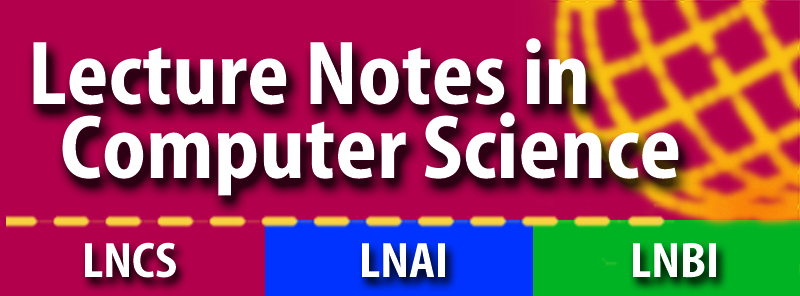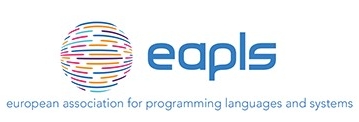Overview
and Scope
The ICTAC
conference series aims at bringing together researchers and
practitioners from academia, industry and government to present
research and exchange ideas and experience addressing challenges in
both theoretical aspects of computing and the exploitation of theory
through methods and tools for system development. ICTAC also aims to
promote research cooperation between developing and industrial
countries.
The conference concerns all aspect of theoretical computer science, including, but not limited to:
- Languages and automata
- Semantics of programming languages
- Logic in computer science
- Lambda calculus, type theory and category theory
- Domain-specific languages
- Theories of concurrency and mobility
- Theories of distributed computing
- Models of objects and components
- Coordination models
- Timed, hybrid, embedded and cyber-physical systems
- Security and privacy
- Static analysis
- Probabilistic and statistical verification
- Software verification
- Software testing
- Runtime verification
- Program generation and transformation
- Model checking and theorem proving
- Applications and case studies
Call for Papers
We solicit submissions, related to the topics of ICTAC, in the
following categories:
- original research contributions (16 pages max, excluding references);
- applications and experiences (16 pages max, excluding
references);
- short papers, with original work in progress or with proposals of
new ideas and emerging challenges (6 pages max, excluding references);
and
- tool papers (6 pages max, excluding references).
All submissions must be original, unpublished, and not submitted
concurrently for publication elsewhere.
Paper submission is done via
EasyChair at
https://easychair.org/conferences/?conf=ictac2021.
Papers must be formatted according to the guidelines for Springer LNCS
papers (see
http://www.springer.com/lncs),
without modifications of margins and other space-saving measures. Authors
should therefore consult Springer’s
authors’
instructions and use their proceedings templates,
either for
LaTeX or for
Word, for the preparation of their papers.
Springer encourages authors to include their ORCIDs in their papers.

Publication
All accepted papers in categories A-D will appear in the proceedings
of the conference that will be published as a volume in Springer’s
Lecture Notes in Computer Science
(LNCS) series.
The authors of a selected subset of accepted papers will be invited to
submit extended versions of their papers to a special issue of the
journal Theoretical
Computer Science.
Invited Speakers
Committees
Program Chairs
- Antonio Cerone, Nazarbayev University, Kazakhstan
- Peter Ölveczky, University
of Oslo, Norway
Regional Publicity Chairs
- Stefan Gruner, University of Pretoria, South Africa
- Kazuhiro Ogata, Japan Advanced Institute of Science and Technology, Japan
- Elaine Pimentel, Federal University of Rio Grande do Norte, Brazil
- Riadh Robbana, INSAT, Carthage University, Tunisia
- Nikolay Shilov, Innopolis University, Russia
Program Committee
- Erika Ábrahám, RWTH Aachen University, Germany
- Bernhard K. Aichernig, TU Graz, Austria
- Musab A. Alturki, Runtime Verification Inc., USA, and King Fahd University of Petroleum and Minerals, Saudi Arabia
- Étienne André, Université de Lorraine, France
- Ebru Aydin Gol, Middle East Technical University, Turkey
- Kyungmin Bae, POSTECH, Korea
- Maurice ter Beek, ISTI-CNR, Italy
- Dirk Beyer, LMU Munich, Germany
- Simon Bliudze, INRIA Lille, France
- Roberto Bruni, University of Pisa, Italy
- Antonio Cerone, Nazarbayev University, Kazakhstan
- Manuel Clavel, Vietnamese-German University, Vietnam
- Adrian Francalanza, University of Malta, Malta
- Rob van Glabbeek, Data61, CSIRO, Australia
- Sergey Goncharov, Friedrich-Alexander
University Erlangen-Nürnberg, Germany
- Jan Friso Groote, Eindhoven University
of Technology, The Netherlands
- Stefan Gruner, University of Pretoria, South Africa
- Osman Hasan, National University of Sciences and Technology, Pakistan
- Klaus Havelund, Jet Propulsion Laboratory, USA
- Kim Larsen, Aalborg University, Denmark
- Axel Legay, Université catholique de Louvain, Belgium
- Martin Leucker, University of Lübeck, Germany
- Manuel Mazzara, Innopolis University, Russia
- Catherine Meadows, Naval Research Laboratory, USA
- Larissa Meinicke, The University of Queensland, Australia
- Hans de Nivelle, Nazarbayev University, Kazakhstan
- Kazuhiro Ogata, Japan Advanced Institute of Science and Technology, Japan
- Peter Ölveczky, University of Oslo, Norway
- Catuscia Palamidessi, Inria, France
- Elaine Pimentel, Federal University of Rio Grande do Norte, Brazil
- José Proença, Polytechnic Institute of Porto, Portugal
- Riadh Robbana, INSAT, Carthage University, Tunisia
- Gwen Salaün, University Grenoble Alpes, France
- Davide Sangiorgi, University of Bologna, Italy, and INRIA, France
- Lutz Schröder, Friedrich-Alexander
University Erlangen-Nürnberg, Germany
- Volker Stolz, Western Norway University of Applied Sciences, Norway
- Georg Struth, The University of Sheffield, UK



